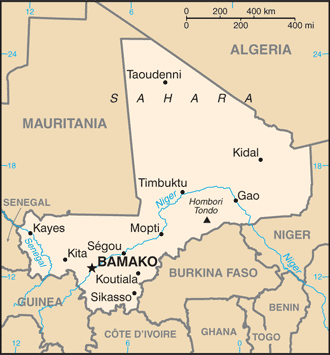Russia Becomes First Country to Recognise Taliban Government in Afghanistan
- TPP

- Jul 4, 2025
- 4 min read

In a landmark move that could reshape regional diplomacy, Russia has officially recognised the Taliban government in Afghanistan, becoming the first country in the world to do so. On Thursday, the Russian Ministry of Foreign Affairs announced it had accepted the credentials of the Taliban-appointed ambassador in Moscow, a symbolic and formal step toward full diplomatic recognition.
In its statement, the ministry noted:
“We believe that the act of official recognition of the government of the Islamic Emirate of Afghanistan will give impetus to the development of productive bilateral cooperation between our countries in various fields.”
This recognition comes nearly four years after the Taliban seized power in August 2021, following the chaotic withdrawal of U.S.-led forces from Afghanistan after two decades of war. The former Afghan government, backed by the West, collapsed rapidly, prompting international hesitation in dealing with the Taliban regime.
How Did Russia’s Relationship with the Taliban Evolve Over Time?
The move is part of Moscow’s broader strategy of normalising ties with the Taliban, a group it once labelled a terrorist organisation. In 2003, Russia had placed the Taliban on its “terrorist” blacklist, primarily due to their alleged support for separatists in the North Caucasus, a region plagued by Islamist insurgency. However, in April 2024, the Russian Supreme Court lifted that designation, signalling a major policy pivot.
Russian Foreign Minister Sergey Lavrov justified the change by stating that “the new authorities in Kabul are a reality” and urged for a “pragmatic, not ideologised policy” toward Afghanistan. President Vladimir Putin has gone even further, describing the Taliban as "allies in the fight against terrorism", particularly against Islamic State Khorasan Province (ISKP)—a violent offshoot of ISIS responsible for deadly attacks in both Afghanistan and Russia. (ISKP, or ISIS-K, is a regional affiliate of the Islamic State operating in Afghanistan and parts of Central Asia.)
In March 2024, Russia experienced one of its deadliest terrorist attacks in years, when ISKP claimed responsibility for an assault on a Moscow concert hall that killed 149 people. This security threat has likely accelerated Moscow's shift toward cooperating with the Taliban as a counterweight against extremist groups.
What Are the Economic and Security Interests Behind Russia’s Recognition of the Taliban?
The recognition is not merely symbolic. Russia is now actively looking to expand security, counter-terrorism, and anti-drug cooperation with Afghanistan. Moscow also sees significant economic potential in sectors such as energy, transport, agriculture, and infrastructure. Already, trade ties have been growing, with Afghanistan importing Russian oil, gas, and wheat since 2022.
Russia’s plans include using Afghanistan as a transit hub for gas exports to Southeast Asia, a move that could strengthen regional trade routes and enhance Moscow’s economic influence in the broader region.
Russia was also the first country to open a business representative office in Kabul following the Taliban's return to power. The group has been increasingly welcomed into Russian political and economic circles, with Taliban delegations attending Russia’s flagship economic forum in Saint Petersburg in both 2022 and 2024.
How Has the Taliban Reacted to Russia’s Official Recognition?
Afghan Foreign Minister Amir Khan Muttaqi hailed the Russian move as a “courageous step” and expressed optimism that other countries might follow suit. “Now that the process of recognition has started, Russia was ahead of everyone,” Muttaqi said in a video of his meeting with Russian Ambassador Dmitry Zhirnov, posted on social media platform X (formerly Twitter).
“God willing, it will serve as an example for others as well.”
Despite Moscow’s bold step, no other country has formally recognised the Taliban regime as the official government of Afghanistan. However, countries like China, the United Arab Emirates (UAE), Uzbekistan, and Pakistan have taken steps toward normalisation by appointing ambassadors to Kabul—indicating a de facto acceptance, if not formal recognition.
Why Have Other Countries Hesitated to Recognise the Taliban Government?
The Taliban government remains unrecognised by any global body, including the United Nations, which continues to refer to the administration as the “Taliban de facto authorities.” Western powers, particularly the United States, have maintained a firm stance against official recognition. The U.S. has frozen billions of dollars in Afghan central bank assets and continues to impose sanctions on senior Taliban leaders, contributing to the country’s economic isolation.
Human rights concerns, especially regarding the rights of women and girls, remain one of the largest obstacles to international acceptance. The Taliban has imposed severe restrictions, banning women and girls from attending high school and university, and enforcing gender segregation and mobility restrictions in public life. The group claims to be operating under its interpretation of Sharia law, though critics argue it amounts to systemic oppression.
How Does This Shift Reflect Russia’s Changing Strategic Priorities in the Region?
Moscow’s move must also be seen in the context of historical shifts. The Taliban emerged in 1994 during the Afghan Civil War, formed largely by former Mujahideen fighters—many of whom had received U.S. support in the 1980s to fight against the Soviet Union. The defeat of Soviet forces in Afghanistan is widely believed to have contributed to the eventual collapse of the USSR.
Today, however, Russia is recalibrating its role in the region. By recognising the Taliban, Moscow not only hopes to expand its geopolitical and economic influence but also aims to ensure stability along its southern borders, particularly amid the rising threat of transnational jihadist groups.
Explore more on UPSC Content
Click for Daily Quotes:
Stay updated with the latest news by joining our Telegram channel – The PRESS Pad , and follow us on Instagram and X.



Comments